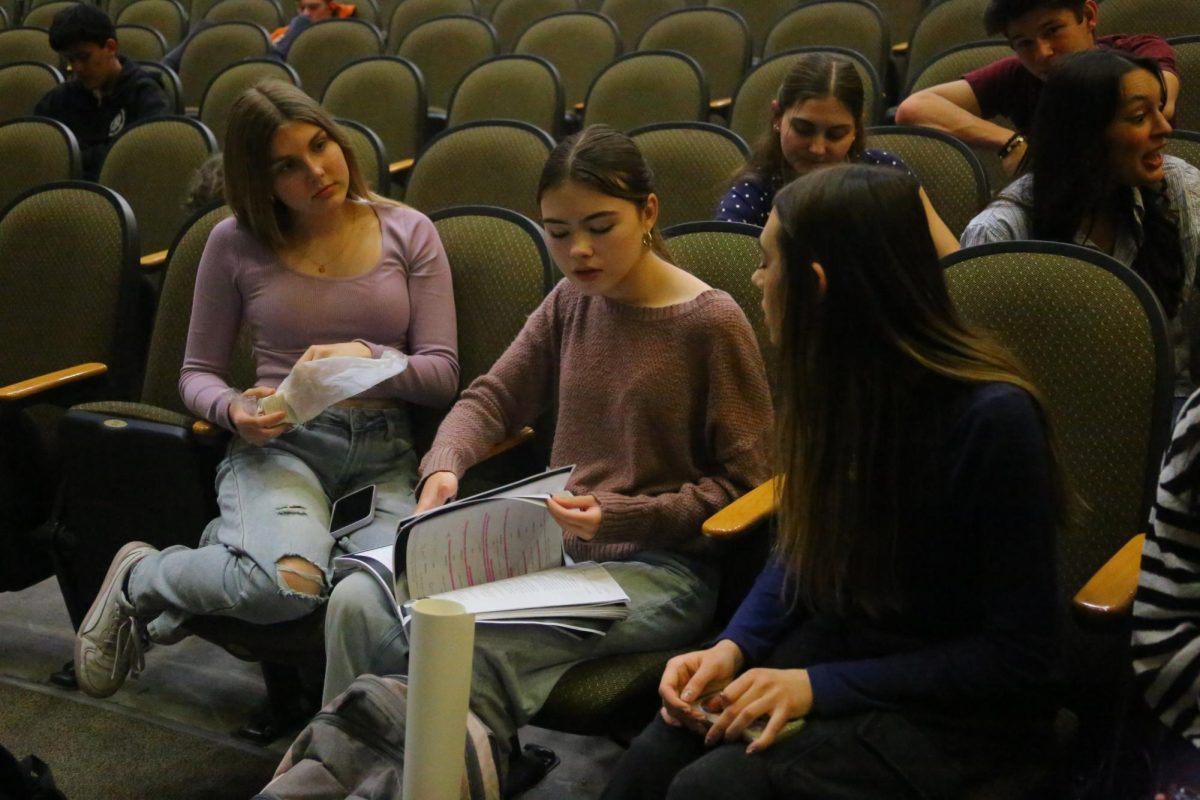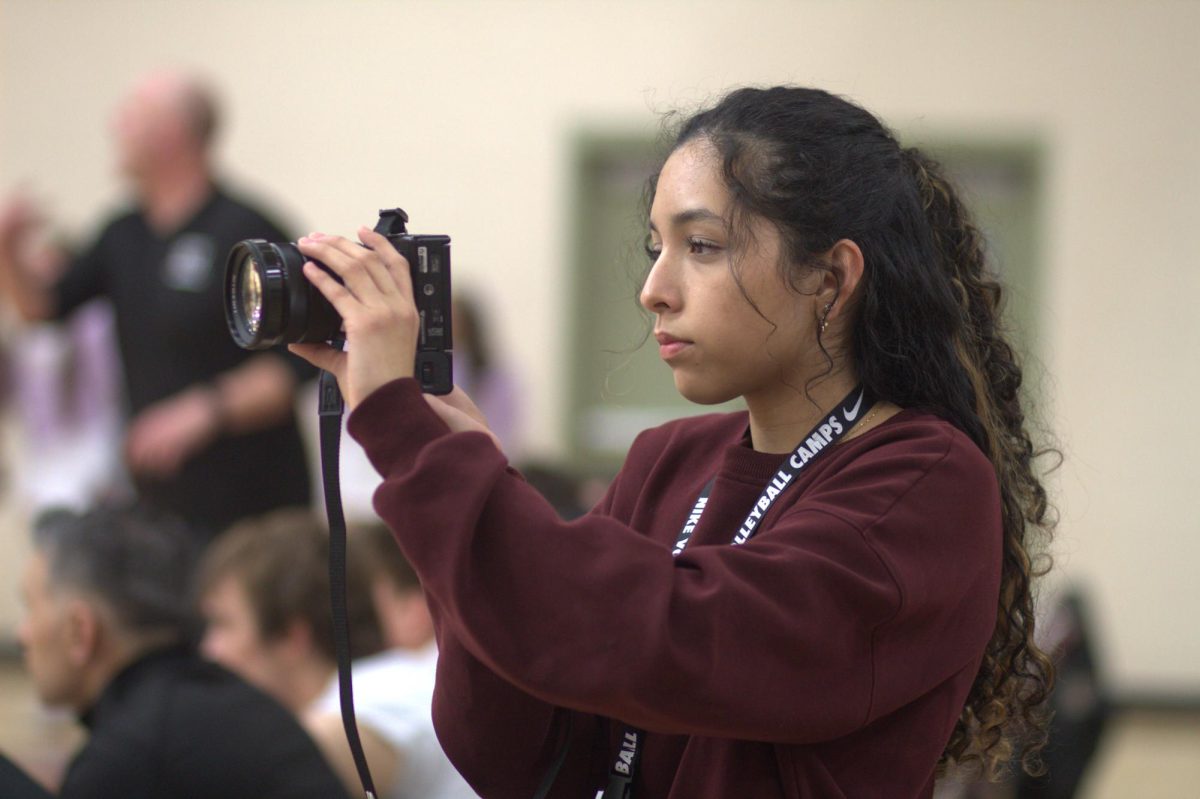Photo Illustration by Eleanor Mueller
As numerous budgets, office staff and custodians have been cut from this school in the past year, one thing has been added: red lines.
They’re unmistakable. Bright and loud, you can almost hear them bellow “STOP.” This is all by design, because the message is clear: nobody can pass them. At lunch, anyway.
This idea is not exactly new to the school, as there have been white lines restricting access to the D and E buildings for the past two years. But now, with the addition of these crimson barriers, there is no longer any access between the E and F buildings or in front of the computer lab.
With the recent cuts in the budget, much of the lunchtime supervision has decreased, and the administration thinks that the tighter boundary lines will be the best solution.
“[The administration] felt that both for the campus cleanliness and safety, we had to push everybody in a little bit more into areas where we could see [the students],” assistant principal Sherry Mauser said.
Some students are having a hard time adjusting to the recent change, though.
“I’m disgusted by those lines. We’ve had that spot for three years now, and we never make any issues there, so why should we move?” Garrett Longacre said. Longacre and his friends sat outside the F building for their high school careers, sometimes playing guitar but always enjoying their freedom to sit where they pleased.
However, Mauser wants to clarify that it’s not a trust issue.
“It’d be great if everybody was more responsible, just in general … but it is our duty to make sure that we can safely monitor our campus, and with less people, it just becomes that much harder,” Mauser said.
The budget dilemma has forced the cut of a lunchtime custodian, which was a key factor in making the decision for the red lines.
“We just don’t have the manpower to be out there like we have in the past. There are fewer of us to go around,” Mauser said.
And while some people like Longacre are affected somewhat negatively by the new boundaries, others seem to be dealing with it just fine.
“The students have been very responsive to staying in the areas that they should and I really appreciate it. The main groups that did seem to hang out in those particular areas and are now not able to … have just moved forward a little bit and found a new place to hang out,” Mauser said.
By ROBERT PARKER





